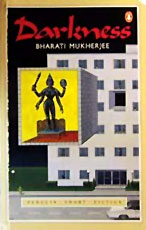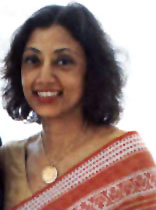 The `Darkness` is a creation of Bharati Mukherjee that contains the same problem as the other works of the author. The book is rightly named as the title of the collection implies, the stories are bleak and offer an angry judgment of conviction of the hospitality of the West.
The `Darkness` is a creation of Bharati Mukherjee that contains the same problem as the other works of the author. The book is rightly named as the title of the collection implies, the stories are bleak and offer an angry judgment of conviction of the hospitality of the West.
Bharati Mukherjee is always famous as a critically acclaimed author. She has faced a good deal of criticism, particularly from East Indian scholars and critics. It has been said that she often represents India in her fiction as a land without hope or a future. She has also been criticized for some reasons like her tendency to overlook unavoidable barriers of caste, education, gender, race and history in her tales of survivors. The feel is again repeated in `Jasmine`. She always shows her characters more opportunities than their social circumstances would realistically allow. Bharati Mukherjee is currently a Distinguished Professor of English at the University of California-Berkeley. Her husband teaches at the University of Iowa and they have two sons together, Bart Anand and Bernard Sudhir. Mukherjee has successfully established herself as a powerful member of the American literary scene. His literary works reflect her pride in her Indian heritage. But some of her writings also show her inclination towards America. According to her "The immigrants in my stories go through extreme transformations in America and at the same time they alter the country`s appearance and psychological make-up." The author experience to demonstrate the changing shape of American society and this feeling is prominent in many of her writing.
Bharati Mukherjee is currently a Distinguished Professor of English at the University of California-Berkeley. Her husband teaches at the University of Iowa and they have two sons together, Bart Anand and Bernard Sudhir. Mukherjee has successfully established herself as a powerful member of the American literary scene. His literary works reflect her pride in her Indian heritage. But some of her writings also show her inclination towards America. According to her "The immigrants in my stories go through extreme transformations in America and at the same time they alter the country`s appearance and psychological make-up." The author experience to demonstrate the changing shape of American society and this feeling is prominent in many of her writing.
Synopsis:
`Darkness` by Bharati Mukherjee is a collection of twelve short stories about the difficulties that Indian immigrants have in adjusting to life in Canada and the United States. This one is Mukherjee`s first volume of short fiction. The book deals with the problems of the outsiders including language issues and other cultural differences; they often become the victims of racial prejudice and violence that limit their freedom and opportunity as well. The story depicts severe racism in Canada. In her words subtle racial discrimination in the United States leaves immigrants with broken dreams. All the short stories assembled in this book focuses on natives of South Asia who crave success and stability, but are burdened by their histories and face the difficulties of prejudice and misunderstanding. Bharati Mukherjee gets critical acclamation for the publication of Darkness in 1985. Critics applauded Mukherjee`s vivid and realistic portrayals of Indian immigrant life. But for some comments about comparing the racial discrimination between Canada and United States the book raises some controversy while the majority of critics acclaimed Darkness as a rich exploration of homelessness and loss of identity in the tradition of authors such as Naipaul and Malamud.
Penguin Canada, Fawcett, and Penguin Books Ltd. publish `Darkness`, in the year of 1985.
This `Darkness` is a collection of short fictions by Bharati Mukherjee, which is known as her transitional work. This book reflect some of her thoughts about Canada and United States where she goes back on her difficult years in Canada and cherishing the opportunity to establish herself in the United States. Her immigrant characters want to fit in U.S. and yet they want to adhere to their past and culture as well as ethics. She never loses her sense of irony or absurdity while writing this book.













